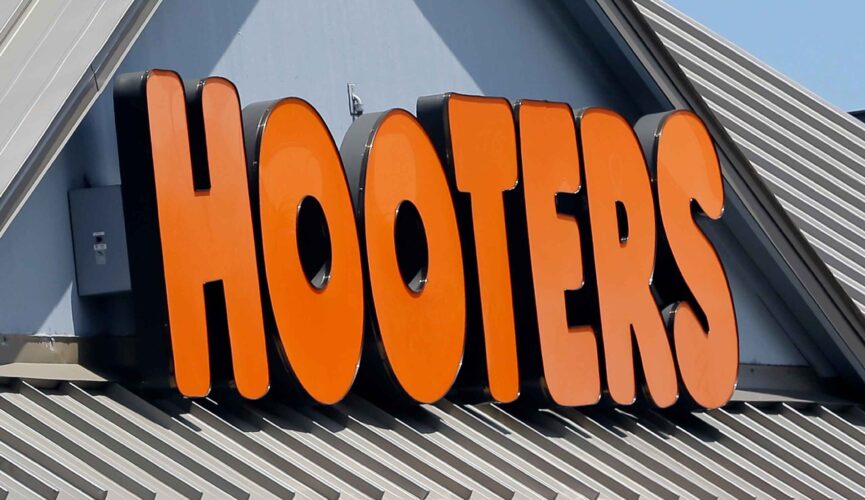Hooters, the restaurant chain known for its waitresses and wings, has seen 40 locations close in recent weeks due to rising costs like rent and food prices.
It saw several stores close down over this weekend and has experienced closures in Florida, Kentucky, Rhode Island, Texas, and Virginia, according to The Daily Mail.
It joins the long list of restaurant chains struggling around the country to stay afloat, such as Red Lobster, which has shuttered numerous stores and has filed Chapter 11 bankruptcy. The seafood chain was unable to make payroll as of April.
Learn the benefits of becoming a Valuetainment Member and subscribe today!
Hooters does not appear to be as strapped for cash as Red Lobster, as it has not yet filed for bankruptcy, and several owners say the chain “remains highly resilient and relevant” and point to the success of their frozen foods in grocery stores.
“Like many restaurants under pressure from current market conditions, Hooters has made the difficult decision to close a select number of underperforming stores,” a source told The Daily Mail. “We look forward to continuing to serve our guests at home, on the go and at our restaurants here in the US and around the globe.”
In light of this downturn, Hooters will have about 300 open locations, down from about 333 in 2018 per Techonomic. Chains like Dave & Buster’s, Miller’s Ale House, and Twin Peaks have more open stores.
As restaurants across the country jack up prices to cover costs, their fans have begun pulling back, Applebee’s, TGI Fridays, and Boston Market have all had to close locations.
As Valuetainment previously reported, California lost 10,000 fast food jobs due to the state’s $20 minimum wage, according to the California Business and Industrial Alliance (CABIA). Some of the affected restaurants include Fosters Freeze, which closed a location; Pizza Hut, which had two of its operators in California lay off all their delivery drivers; Mod Pizza, which closed five stores; Excalibur Pizza, which is cutting 21 percent of its workforce; Subway, which shrank by 443 locations last year; and a Californian owner of 140 Burger King franchises cutting workers’ hours and accelerating the implementation of self-serve kiosks.
Several chains began laying off employees before the effects of the minimum wage were felt, like Starbucks, McDonald’s, and multiple pizzerias, which laid off hundreds of employees, slowed hiring, and cut back on hours for the workers who remain.
Under the Fast Food Accountability and Standards (FAST) Recovery Act, fast food chains with 60 or more locations in the state of California (counted across individually owned franchises) are obligated to abide by the new wage laws. The previous average salary for food service workers in the state was $16.
 Shane Devine is a writer covering politics and business for VT and a regular guest on The Unusual Suspects. Follow Shane’s work here.
Shane Devine is a writer covering politics and business for VT and a regular guest on The Unusual Suspects. Follow Shane’s work here.


















Add comment